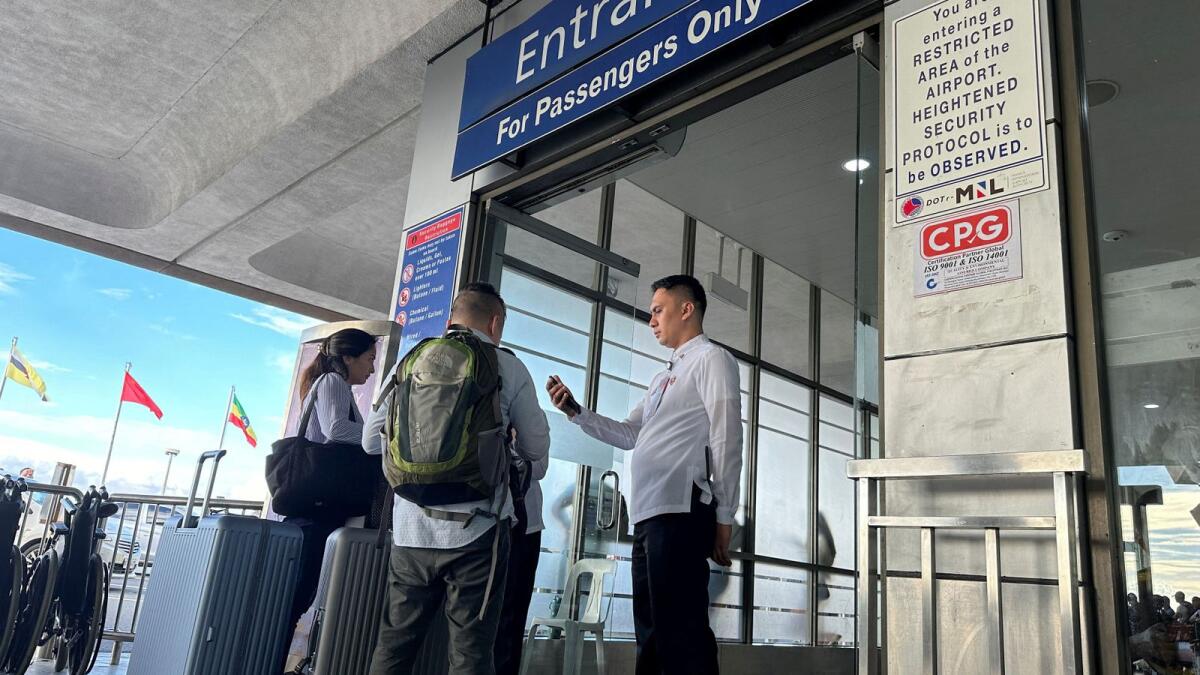In response to the ongoing threat of monkeypox, the Philippine government has implemented new requirements for all travellers entering and leaving the country. This includes Overseas Filipino Workers (OFWs), tourists, and foreigners, who are now mandated to declare any symptoms they have experienced in the past 30 days, specifically “rashes, vesicles, or blisters.” This measure is part of the country’s intensified surveillance against monkeypox, now referred to as mpox.
The updated e-travel form, which passengers must fill out online, includes this new requirement as part of data collection for border control, health surveillance, and economic data analysis. The Department of Health (DOH) in the Philippines stated that this added measure aims to prevent the entry of additional mpox cases, particularly from clade 1b. The DOH Bureau of Quarantine (BOQ) has slightly modified its screening questions to include the specific symptoms associated with mpox.
If a traveller indicates that they have been sick in the past 30 days, they will now be asked about “rashes, vesicles, or blisters” as an additional option. The ministry emphasized the importance of honesty in answering these questions. If a traveller is determined to be at risk due to exposure to mpox or exhibiting symptoms, they will undergo additional screening and could be transferred to an mpox referral hospital. Currently, there are five active mpox cases in the country, with a total of 14 cases recorded since July 2022.
Common symptoms of mpox include skin rashes, mucosal lesions, fever, headache, muscle aches, and swollen lymph nodes. The virus has been a public health concern in parts of Africa for decades but gained international attention in 2022, leading to a global health emergency declaration by the World Health Organization (WHO). Although the emergency was lifted after ten months, a new strain known as clade 1b has caused a resurgence of cases, prompting another global health emergency declaration. Travellers to the Philippines are urged to stay informed and comply with the health protocols to prevent the spread of mpox.
In light of the ongoing threat posed by mpox, the Philippines has introduced stricter measures for travellers entering and leaving the country. This includes a requirement to declare any symptoms such as rashes, vesicles, or blisters experienced in the past 30 days. The updated e-travel form aims to collect crucial data for border control, health surveillance, and economic analysis. The Department of Health (DOH) is taking these steps to prevent the entry of additional mpox cases, particularly from the newly identified clade 1b.
Travellers must be truthful in their responses to screening questions, especially regarding any recent illnesses or symptoms. If a traveller is deemed at risk based on exposure or symptoms, they will undergo additional screening and may be transferred to an mpox referral hospital for further evaluation. With five active cases in the country and a total of 14 recorded cases since July 2022, health officials are closely monitoring the situation and urging compliance with health protocols to contain the spread of the virus.
The common symptoms of mpox include skin rashes, mucosal lesions, fever, headache, muscle aches, and swollen lymph nodes. While mpox has been a long-standing health concern in parts of Africa, it gained international attention in 2022, leading to a global health emergency declaration by the World Health Organization (WHO). Despite the initial emergency being lifted, the emergence of a new strain, clade 1b, has renewed concerns and prompted another global health emergency declaration. Travellers to the Philippines are advised to stay informed and adhere to the established protocols to mitigate the risk of mpox transmission.
In conclusion, the Philippines is taking proactive measures to combat the spread of mpox within its borders. By implementing stricter screening requirements for travellers and enhancing surveillance efforts, the government aims to prevent the entry of additional cases and protect public health. Travellers are urged to be forthcoming with information about their health status and symptoms to facilitate effective monitoring and response. With ongoing vigilance and adherence to health protocols, the country can better control the spread of mpox and safeguard the well-being of its residents and visitors.








